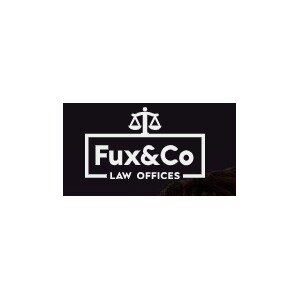Best Debt & Collection Lawyers in Tel Aviv
Share your needs with us, get contacted by law firms.
Free. Takes 2 min.
List of the best lawyers in Tel Aviv, Israel
About Debt & Collection Law in Tel Aviv, Israel
Debt & collection law in Tel Aviv, Israel, is a specialized area of the legal system that deals with the recovery of unpaid debts. This can involve a variety of processes, including negotiation, litigation, and enforcement of court judgments. There are specific laws and regulations governing how debts can be collected, ensuring that the rights of both creditors and debtors are protected. The aim is to balance the need for creditors to recover their dues while safeguarding debtors from unfair practices.
Why You May Need a Lawyer
There are numerous situations in which individuals or businesses may require legal assistance in the realm of debt and collection:
- Unpaid Debts: Creditors seeking to recover unpaid debts from individuals or companies.
- Debt Disputes: Debtors disputing the amount or validity of a claimed debt.
- Enforcement of Judgments: Creditors needing to enforce court judgments to collect debts.
- Bankruptcy Proceedings: Both creditors and debtors involved in bankruptcy cases.
- Negotiations: Both parties may need legal assistance during settlement negotiations.
- Legal Compliance: Ensuring that debt collection practices comply with local laws and regulations.
Local Laws Overview
The debt and collection landscape in Tel Aviv is governed by several key laws and regulations:
- Execution Office Law: Outlines the processes for enforcing court rulings regarding debt payments.
- Bankruptcy Ordinance: Covers the procedures for liquidation and restructuring of debts through bankruptcy.
- Contract Law: Involves agreements between creditors and debtors and their legal obligations.
- Fair Debt Collection Practices: Security Ordinance ensuring collectors do not engage in abusive or unfair practices.
- Prescription Law: Sets the limitation periods for various types of debt claims.
Frequently Asked Questions
1. What should I do if someone owes me money in Tel Aviv?
First, attempt to resolve the issue amicably by contacting the debtor. If this fails, you may need to use legal measures such as sending a formal demand letter or initiating a lawsuit.
2. How long does it take to collect a debt legally?
The duration can vary depending on the complexity of the case, the responsiveness of the debtor, and the efficiency of the judicial process. It can take anywhere from several months to a few years.
3. Can I recover legal fees from a debtor?
In some cases, the court may award legal fees to be paid by the debtor. This can depend on the specifics of the case and the court’s discretion.
4. What is the statute of limitations for debt collection in Israel?
The statute of limitations for most debt collection cases in Israel is seven years from the date the debt became due. However, this can vary based on the type of debt.
5. What happens if I ignore a debt collection notice?
Ignoring a debt collection notice can lead to legal action, resulting in a court judgment against you. This may lead to wage garnishments, bank account levies, and other enforcement actions.
6. Can a lawyer help negotiate a debt settlement?
Yes, a lawyer can assist in negotiating a debt settlement, often resulting in more favorable terms and ensuring legal compliance.
7. What is the Execution Office Law?
The Execution Office Law governs the enforcement of court rulings, providing mechanisms for creditors to collect from debtors who have not voluntarily fulfilled court-ordered payments.
8. Are there protections against unfair collection practices?
Yes, there are laws in place to protect debtors from abusive, unfair, or deceptive collection practices.
9. Can a creditor take my personal property for unpaid debts?
Depending on the case, a court may allow creditors to seize certain personal property. However, there are exemptions and limits to what can be taken.
10. How does bankruptcy affect debt collection?
Bankruptcy proceedings can halt debt collection efforts and may lead to a restructuring or discharge of debts, depending on the type of bankruptcy filed.
Additional Resources
For more information and assistance, you may find the following resources helpful:
- Ministry of Justice: Provides official information on laws and regulations.
- Execution Office: Handles enforcement of court judgments.
- Israeli Bar Association: Can help you find a qualified lawyer specializing in debt collection.
- Consumer Protection Authority: Offers resources and support for debtors facing unfair collection practices.
Next Steps
If you require legal assistance in debt and collection, consider the following steps:
- Gather all relevant documents and information related to your debt situation.
- Consult with a legal professional specializing in debt and collection.
- Discuss your case and explore your legal options, including negotiation, litigation, and other legal remedies.
- Follow your lawyer's advice and take the necessary actions to protect your interests.
Seeking professional legal guidance can help you navigate the complexities of debt and collection laws and lead to a more favorable outcome.
Lawzana helps you find the best lawyers and law firms in Tel Aviv through a curated and pre-screened list of qualified legal professionals. Our platform offers rankings and detailed profiles of attorneys and law firms, allowing you to compare based on practice areas, including Debt & Collection, experience, and client feedback.
Each profile includes a description of the firm's areas of practice, client reviews, team members and partners, year of establishment, spoken languages, office locations, contact information, social media presence, and any published articles or resources. Most firms on our platform speak English and are experienced in both local and international legal matters.
Get a quote from top-rated law firms in Tel Aviv, Israel — quickly, securely, and without unnecessary hassle.
Disclaimer:
The information provided on this page is for general informational purposes only and does not constitute legal advice. While we strive to ensure the accuracy and relevance of the content, legal information may change over time, and interpretations of the law can vary. You should always consult with a qualified legal professional for advice specific to your situation.
We disclaim all liability for actions taken or not taken based on the content of this page. If you believe any information is incorrect or outdated, please contact us, and we will review and update it where appropriate.













